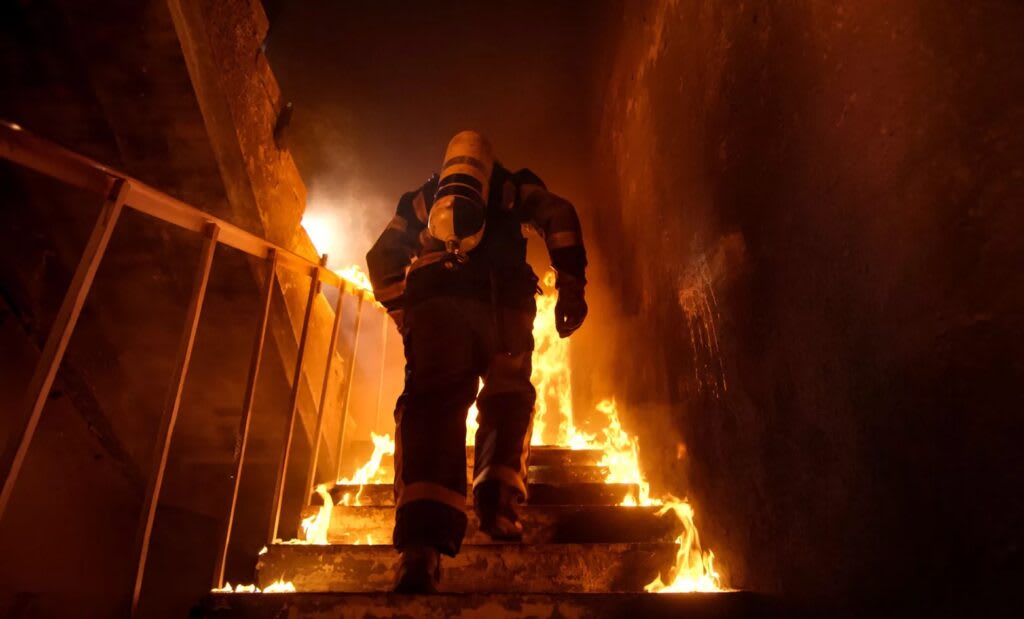A house fire is something we all dread, but there are ways to prepare that can make a fire safer. Planning ahead and keeping your home safe can reduce the impact of a house fire, and in the best cases, stop a fire before it starts. But first, let’s talk about fire prevention.
Make sure your smoke alarms are working.
It can be tempting to take the batteries out of a smoke alarm if you’re prone to burning your breakfast, but this is one of the most dangerous things you can do. Thousands of devastating fires in the UK could have been prevented by being detected earlier, and that’s exactly what your smoke alarm was built to do.
Get it, fit it, test it every three months and never, ever take the batteries out.
Check your electronics
If you’re not convinced your electronic device is safe to use, don’t risk it. Electrical fires are extremely dangerous, as not only can they worsen quickly, you could also get an electric shock. Frayed wires, loose plug pins and broken phone chargers – just don’t use them.
Draw up an escape plan
It sounds dramatic, but your best defence against an uncontainable house fire is knowing exactly where you’re going and what you need to do to get there. You may have lived in your home for 50 years, but in the dark or in smoky conditions, it’s easy to become disorientated.
Draw up a plan and talk through it with the whole family, making sure everybody knows exactly what to do if they ever experience a fire. Include directions, instructions on how to use any fire blankets, extinguishers or how to open safety windows, and make sure everyone in the house knows the easiest routes out of the house on all levels.
If you find yourself in a house fire, there are some important rules to remember in order to keep you safe. Knowing what to do could save your life, so read on and incorporate these points into your fire safety plan.
Know when to run
It can be difficult to know when to escape from a fire if you feel like it’s containable. As hard as it is to leave your home and possessions in a fire, if your extinguisher isn’t having an effect, or the fire seems to be getting larger despite your efforts, get out of there as quickly as you can. Close the door behind you if you can, as this can help contain the fire for much longer.
Leave your valuables
As tempting as it is to return back to the house for a handbag or the car keys, once you and your family have managed to safely escape from the house, it’s vital that you do not re-enter. Even if an area of your home hasn’t been visibly affected by fire, there may be unseen structural damage, carbon monoxide or smoke toxins in the air that can seriously affect your health. Stay outside with the fire services and stay safe.
See smoke – Drop
If you see smoke as you’re trying to escape, drop to the floor and continue your route by crawling, if it’s safe to do so. Smoke kills, mainly because of the toxic fumes released by burning plastics, fabrics and paints, but also because of the superheated air that can become trapped inside. Cover your mouth if you can, and get away from the area as quickly as you can.
Check doors for heat
If you come to a door during your escape, check if it’s hot with the back of your hand. Fires can be held back by closed doors for valuable minutes, but as soon as the door is open it can worsen the situation. Do not open a door if it is hot – use a window to escape instead.
Call the emergency services
As soon as you’ve gotten to safety, call the fire services. Don’t waste time by calling while you’re inside the burning property – your priority is staying safe and keeping your family safe too.
If you’d like more information on creating a home fire safety plan visit the UK’s Fire Service website: https://www.fireservice.co.uk/safety/escape-plans/
If you are unfortunate enough to ever experience a fire at your home then please call us on 01254 665 333 and let us assist you every step of the way, we work for you, not your insurance company and sometimes even overturn an insurance companies verdict.
Read more about what to do after a fire at your home here.

